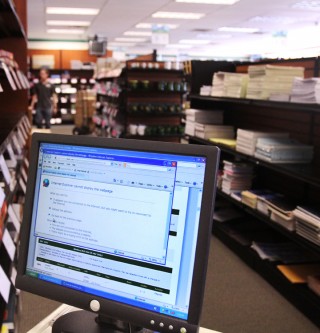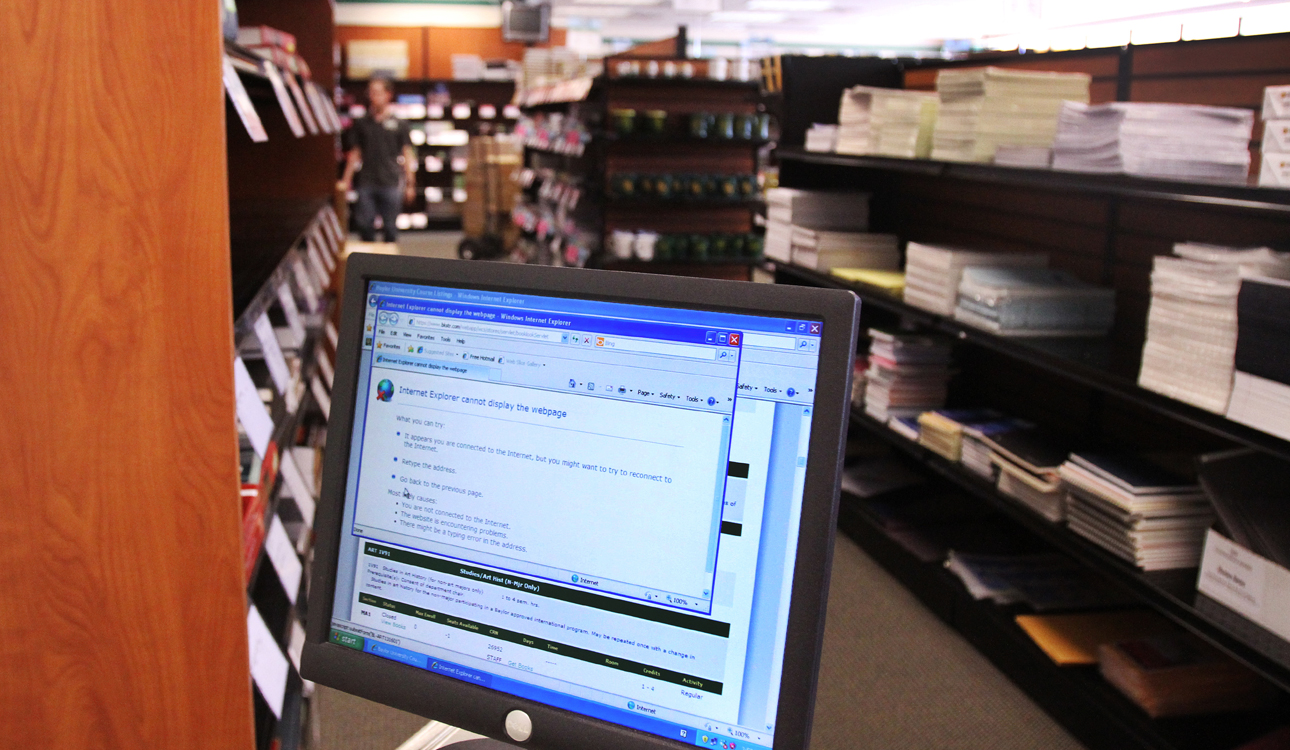
By Daniel C. Houston
Staff Writer
The UBS Bookstore, an off-campus company that sells new and used textbooks to Baylor students, has been blocked from accessing the Baylor bookstore’s website, and the store manager is crying foul.
Follett Corp., which hosts and manages the website for Baylor’s bookstore, has for years restricted website access to potential customers for personal use only; its website policy states “[a]ny commercial use … or use for data collection and/or profit is not allowed.” But this policy, combined with the nature of Follett’s contractual relationship with Baylor, makes it difficult for competing bookstores to find out which textbooks are required material for a given class.
Scott Eggers, store manager for UBS Bookstore and the affiliated UBS Spirit Shop, believes this policy gives the Baylor bookstore an “unfair competition advantage” in identifying which books to put on the shelves each semester.
“While I respect [the management of Baylor’s bookstore] an awful lot,” Eggers said, “I think that we have just as much a right to be able to have that information so that we can sell the student the book … as they do.”
If Baylor students want to know what books they need to purchase for an upcoming semester, they can access a link through Bearweb that will take them to the Follett site with a full list of their required materials. UBS, on the other hand, cannot access this information, according to Eggers, requiring him to consult with each academic department and sometimes each professor individually in order to know what textbooks to order.
But Follett’s director of campus relations, Elio DiStaola, said his company has to go through the same channels as UBS in order to compile book lists. While being Baylor’s contractual partner gives eFollett an advantage because professors are required to submit their materials to the Baylor bookstore, DiStaola said eFollett still has to invest resources to compile this information, which the company has an interest in protecting.
“I can tell you that coming up with a book list does not come without hundreds of hours of work on the part of our staff,” DiStaola said.
Eggers estimated he could spend about one-third less time on information-gathering activities and more time on managing the store if he had the same access to book lists the Baylor bookstore does, but DiStaola believes providing access to information eFollett has already compiled would give UBS an undeserved advantage.
“Unlike those guys across the street, we actually have a contract with the school,” DiStaola said. “This technology wasn’t created for data-mining; this technology was created for our customers.”
Eggers said in the relatively greater amount of time it takes for him to learn what books professors require, it makes it more likely he must buy new books, rather than used books, from publishers. Eggers said this can affect students’ selection of textbooks, and can also drive up the prices UBS has to charge.
“The only part that we want Baylor to have in this is to allow us access to that information,” Eggers said. “When I talk to the bookstore, they’re saying, ‘well, Baylor makes that information available’; when I talk to Baylor, Baylor says, ‘well, the bookstore makes that information available.’ Do you see what I’m saying?”
According to Bill Boney, regional manager for Follett, the policy is one of many necessary precautions the company takes to protect its website, which hosts the online presence of more than 2,000 bookstores across the nation, from the interference of web bots and other practices that place a burden on the site’s bandwidth.






